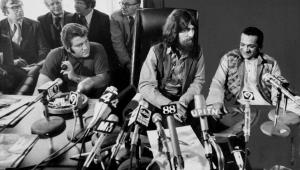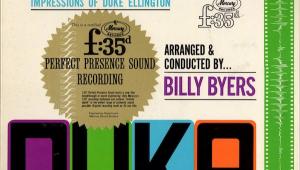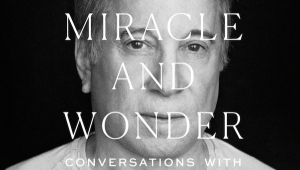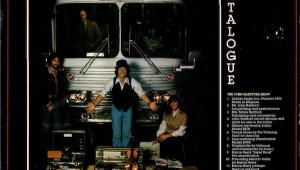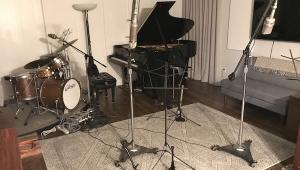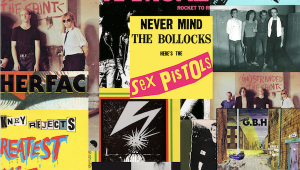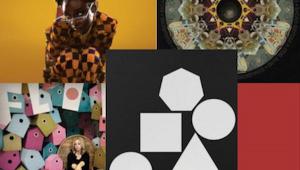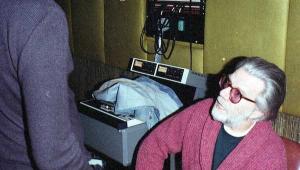An interesting interview and the case
The Musicangle Interview: Producer Rick Rubin, Part 3
MF: You seem like the kind of person who looks around and sees what’s bother you in music—things that are not being done—and you do them. I mean, that’s how you got started in music, essentially. So who’s out there now that’s lying fallow that need to be re-cultivated? Don’t say Yoko Ono.
RR: There are a couple, but I can’t talk about it yet. A couple that I think could really be special.
MF: Have you approached any of them?
RR: A couple.
MF: Well they’ve seen what you’ve done so I can’t imagine it will be as difficult as it might have been getting to Johnny Cash. How about Neil Diamond as a person to do a record with?
RR: He’s one of my favorite artists of all time. Incredible.
MF: Have you thought about approaching him?
RR: It would be a dream come true. He wrote some many great songs, it’s just astounding.
RR: We’ll see. Artists are an interesting bunch. I want to play you one thing quick because we were talking about “Hurt.” It’s another Johnny Cash track that we did. It’s not finished yet. It’s just a basic track. I don’t even know why I even bother making records any more because no radio stations play rock music by grown up people. I don’t even know how people even find out if we do anything.
MF: David Bowie has that problem.
RR: Where does David Bowie go to get played?
MF: He does advertising and hour long concert specials. Elvis Costello got into that position. Who ever thought that he would find himself over the hill in that sense?
RR: This is a song we recorded two months before Johnny passed away in Nashville.
(here Rick plays me an unreleased, unfinished Johnny Cash track).
MF: You will continue what you’re doing and you’re having a good time…
RR: Yea.
MF: It seems like every few years there has to be a re-invention of music
RR: Wherever the magic is, we follow. That’s how the first Johnny Cash CD came about. We didn’t set out to make an acoustic album. We tried a lot of things and we always hear stories of people who do demos and then they make the album, the demo was great and the album was not so good. If you really pay attention there’s no way that can happen. Ultimately you’d record a whole lotta stuff and then you listen back and whatever sounds best is what your record is! Not well, “we recorded this at home so that’s the demo and we recorded this in the studio so that’s the record,” that’s ridiculous. The first (Cash) album was really demo recordings recorded in my living room in my old house. Two Johnny Cash albums were recorded here.
RR: In untreated rooms?
MF: Untreated rooms.
MF: So the acoustic of the room was part of the recording?
RR: Yes.
MF: That’s a big problem with recordings that become so artificial sounding.
RR: Same with studios. Most of the studios I work in were built in the ‘50’s or ‘60’s and they sound amazing. Modern recording studios sound horrible. It’s not just the equipment, it’s the room itself. Now, like the CD they are spec’d out properly, before they were kind of magically with smoke and mirrors made to sound good by people with good ears. Now everything is computer generated. Now it’s perfect, but there’s no vibe at all.
MF: So you use?
RR: I work at Cello which used to be Ocean Way which used to be Western Electric. All of the Beach Boys albums, a lot of Frank Sinatra, all the “Wrecking Crew” stuff was recorded there. A classic studio.
MF: And that will hopefully survive.
RR: They have been on shaky grounds.
MF: Something has to be done about that. I mean it’s like Carnegie Hall was almost torn down and these studios which are irreplaceable as far as I’m concerned have to be maintained and saved.
RR: I agree.
MF: Whatever situation the record business may be in today, I just don’t believe that anything of quality is going to go away.
RR: Of course not.
MF: People will always want quality.
RR: Of course! That’s always been the case.
MF: But it has to come back into favor because right now, it’s not. Which brings me to another question. There are a lot of people now that can buy a little sixteen track recorder and a couple of microphones and make records and there are a lot of those things coming out. And they sound horrible.
RR: But they can sound great though.
MF: They can and some of the lo-fi stuff sounds great but where does that leave the big studios?
RR: It’s definitely hard and I see it all the time. Studios going out of business left and right.
MF: Muscle Shoals got sold on the Internet apparently.
RR: Unbelievable.
MF: So doesn’t there have to be a foundation? A preservation foundation of some kind?
RR: It would be great.
MF: You’ve got plenty of time! Come on! (lots of laughs from both of us).
RR: It would be great, we need it. More hit records probably came out of those rooms (Cello/Ocean Way/Western Electric) than anywhere in the world. I mean Abbey Road has its share of hits, but I think a lot more hits came out of California than came out of England.
MF: And Capitol’s big studio is still there?
RR: Capitol is still there. There’s a studio in the Valley I like called Sound City—that’s where we recorded Wildflowers.
MF: is The Record Plant still there?
RR: The Record Plant is still there, but it’s not the same as the old Record Plant. The Record Plant that all the great records were made out is not. The new one is a multi-studio complex that does mostly Hip-Hop music. They moved around fifteen or twenty years ago. The famous one from the ‘60’s—actually this house was owned by the original owner of The Record Plant, who was an engineer and he lived here. He actually died in the pool under…there’s a shady story but I never really heard the truth.
MF: So that’s going to be a tough thing. Keeping the studios going.
RR: I agree.
MF: But part of that is going to be getting the value of listening better appreciated. I mean I think part of the reason that Norah Jones record was so successful was the sound of it. It was an outstanding analog recording.
RR: Yes. No question and now even at Cello when we were just recording The Chili Peppers there just a couple of months ago, for their greatest hits record, they have these great old tape machines, these Ampex ATRs, which are amazing, but every day they would break down because they’ve been basically shut down for the past few years because no one uses them. Not only to people not use them, people don’t even want them in the room because they’d rather have a couch there! Because everything’s done digitally today.
MF: And they don’t see any correlation to what all of a sudden takes off in the charts, because there is some correlation on some level, for acoustic music especially.
RR: No question.
MF: It will take some re-education.
RR: I hope it happens.
MF: So how active are you in the business side of this? You are involved in your own label which is American Recordings? And Lost Highway?
RR: We are partners with Island/Def Jam which is part of Universal and Lost Highway is part of Island/Def Jam, so depending on the record, like a Slayer record that we did comes out through the Island side, the Johnny Cash and The Jayhawks really felt suited to Lost Highway, so they market and promote them for us. It’s based in Nashville and it’s a full service record company but eventually there are certain functions that they share with Island in New York so if a record gets to a certain stage then the New York people get involved.
MF: So how did country music go from a Johnny Cash kind of person who was a working person’s hero, who advocated the cause of working people, to becoming this kind of right wing redneck thing. How did that happen? Because it did happen. If you look at his sensibility it was so right-on…
RR: One hundred percent. I don’t know the answer to that.
MF: Well it’s not fair for me to ask you that.
RR: It has to do with the culture and I don’t know enough about it. I don’t spend very much time down there. I don’t like it.
MF: Do you see any trends developing? Something new post Hip-Hop? Have you heard “post rock” instrumental music coming out of Canada on Constellation Records? Interesting stuff. It’s all available on vinyl too, immaculately packaged. I get it from a place called Insound.com, a really good record seller. Godspeed You Black Emperor, and a bunch of offshoots. Mostly homemade and really interesting.
RR: I haven’t heard anything radically new that feels like a new trend that’s pulled me along yet.
MF: Could it be that there aren’t any? That everything’s recycled in the post-modern world?
RR: There’s always going to be something new. The way it works is, Nine Inch Nails is a good example to use because Industrial music was around for about ten years, an underground scene. I never really liked it and then this brilliant kid grew up listening to that music…
MF: You mean Joy Division kind of music?
RR: More like Ministry—there was a whole, I guess Chicago based electronic rock music, hard edged.
MF: Do you like the stuff coming out of Chicago on Thrill Jockey and Merge, like Tortoise?
RR: Just okay. One of the problems I have is that I’m in the studio so much that I don’t have so much time to listen to music for pleasure, and when I do, I’m listening to so much loud music during the day, I’ll often listen to classical music or XM radio—the ‘60’s channel on XM.
MF: I know the feeling. When I’m reviewing I have to listen to the same stuff over and over, because it’s reference material. But even though music is your business, you still try to make sure that music is your pleasure.
RR: I try. I mean it naturally is because my inclination is for it to be my pleasure but the fact of the matter is if you’re sitting in front of speakers for eight or ten hours a day, often listening to the same song for days at a time, it really messes with your head. So it’s hard. After that you don’t want to come home and put on even your favorite record. You need a palette cleanser of some kind.
MF: Do movies do that for you?
RR: Sometimes, but more Erik Satie and Bach and just acoustic instruments, and simple, emotional performances.
- Log in or register to post comments


An interesting interview and the case







